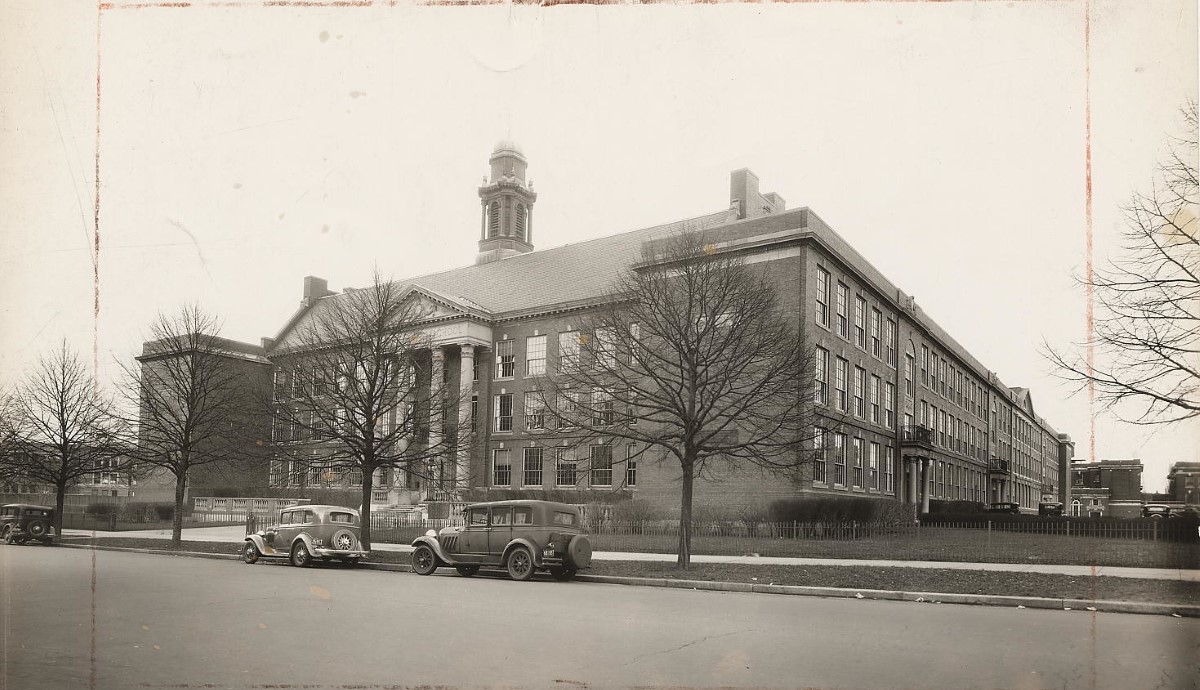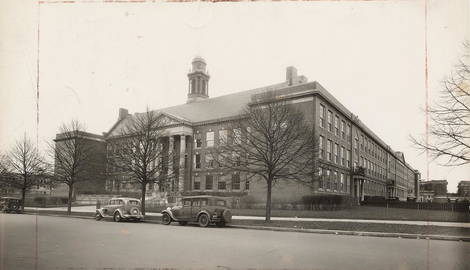
Education in America has always been central to its identity. It actually shaped the nation’s social and cultural fabric. From the earliest colonial days, when education was a privilege for the elite, to the public school systems that now serve millions, the country’s approach to learning has evolved alongside its values. Schools have become mirrors of social change, and they’re adapting to meet the needs of the whole population. Today, the nation is home to more than 25,000 high schools and around 6,000 colleges and universities, many of which are located in so-called college towns steeped in rich history.
While many might think of universities like Harvard and Yale as the oldest pillars of American education, the origins of academic tradition lie elsewhere. Here’s a closer look at the oldest high school in the United States, an institution that laid the foundation for modern education.
What Is the Oldest High School in America?

The title of the oldest high school in America belongs to Boston Latin School, founded in 1635 in Boston, Massachusetts. This prestigious school predates the establishment of Harvard College by a year and was modeled after the grammar schools of England. Its original purpose was to provide a classical education to young boys and prepare them for higher education, particularly at Harvard.
Boston Latin School has maintained its reputation as a pioneer in American education, paving the way for public schooling systems and shaping the academic trajectories of countless students. Its longevity and continued prominence make it a remarkable institution worth exploring in depth.
The History of Boston Latin School

Boston Latin School was founded during a time when education was reserved for the elite. The school’s curriculum focused on classical studies, with a heavy emphasis on Latin and Greek, and it sought to prepare young men for leadership roles in religion, law, and government. Its establishment reflected the early Puritan settlers’ belief in the value of education and their desire to create a literate, morally upright society.
The first classes were held in the home of the schoolmaster, Philemon Pormort, and consisted of a handful of boys from prominent families. Over time, the school moved to various locations in Boston, known as Beantown, before finding its current home on Avenue Louis Pasteur in 1922.
Boston Latin School boasts an impressive list of alumni who have significantly contributed to various fields:
• Benjamin Franklin: Founding Father and polymath.
• John Hancock: President of the Second Continental Congress and the first signer of the Declaration of Independence.
• Samuel Adams: Founding Father and political philosopher.
• Charles William Eliot: President of Harvard University (1869–1909).
• Joseph P. Kennedy: Businessman and father of President John F. Kennedy.
• Leonard Bernstein: Renowned composer and conductor.
Can You Visit Boston Latin School?

Boston Latin School is accessible to visitors, though it is an active educational institution and not a traditional museum. Visitors are encouraged to check ahead for specific visiting hours or opportunities to tour the facilities. The school sometimes hosts events, exhibitions, or lectures that are open to the public, providing a chance to engage with its history and current mission.
For history enthusiasts, the school offers a fascinating glimpse into America’s educational past. While much of the school’s current structure reflects modern design, historical elements, and artifacts have been preserved to honor its legacy.
What to See at Boston Latin School

Boston Latin School houses an extraordinary collection of historical artifacts that reflect its rich legacy, including approximately 5,000 items preserved in the Boston Latin School Archives. These items include publications, photographs, memorabilia, and textiles that document the school’s history during the 19th and early 20th centuries. Memorial Hall, a dedicated space within the school, honors its distinguished alumni and their significant contributions to American society.
Scattered throughout the campus are commemorative plaques that highlight the school’s many achievements and milestones, paying tribute to notable figures and events in its storied past. Visitors can also admire the Benjamin Franklin statue, which stands near the original school site on School Street. This statue celebrates one of the school’s most famous alumni and serves as a testament to the institution’s profound impact on American history. Conveniently situated in Boston, the school is also close to iconic landmarks such as the Freedom Trail and the Massachusetts State House, making it a must-visit destination for those interested in educational and historical tours of the city.
Can You Enroll in Boston Latin School?

As a public exam school in Boston, Boston Latin School accepts students based on academic merit. Admission is competitive and determined through a combination of grades and standardized test scores. While it originally served only male students, Boston Latin School has been coeducational since 1972, further broadening access to its prestigious programs.
Enrollment is limited to students who live in Boston, and the application process requires a strong academic record and exceptional test performance. For those lucky enough to gain entry, the school offers a challenging and rewarding educational experience that has been honed over centuries.
Community Engagement and Lasting Legacy

Boston Latin School’s sustainability programs emphasize education for sustainability, systems thinking, youth leadership, service learning, and collaboration. These efforts involve partnerships with city officials, government agencies, local businesses, schools, and non-profit organizations, establishing Boston Latin as a model for green school practices.
A notable example is the Boston Latin School Youth Climate Action Network, which played a significant role in developing Boston’s Climate Action Plan. This student-led group organized community engagement sessions to involve young people in climate action, demonstrating the school’s dedication to empowering students as active community participants.
The Boston Latin School Association (BLSA) further strengthens community ties by connecting alumni, parents, and students. The BLSA Family Committee, led by parent volunteers, focuses on building a supportive parent community and enhancing parent engagement through fundraising and outreach efforts.
Other Notable Public High Schools in America

While Boston Latin School holds the distinction of being the oldest high school in America, several other institutions also have remarkable histories and significant contributions to education. Central High School in Philadelphia, established in 1836, stands out as one of the oldest public high schools still in continuous operation. Similarly, Hartford Public High School in Connecticut, founded in 1638, shares a long-standing legacy and has adapted over the years to meet the demands of modern education. Stuyvesant High School in New York City, though not as old, is celebrated for its rigorous academic programs and exceptional achievements in STEM fields. Together, these schools reflect the diversity and depth of America’s educational heritage.










